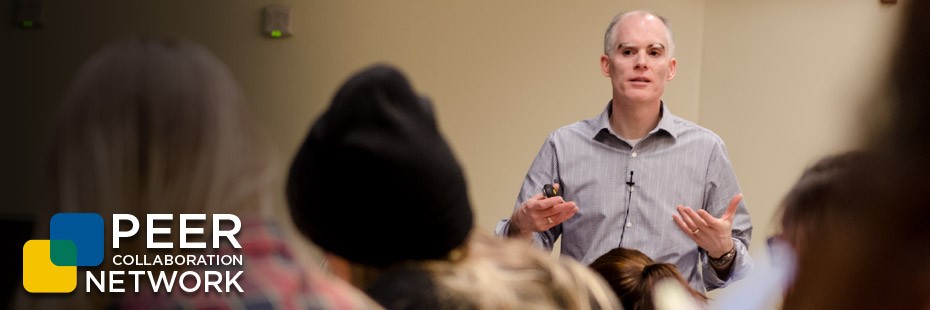The overarching goal of the PCN is to provide faculty and staff a means by which they can develop their own teaching practices, which, when considered collectively, will enhance teaching practices across all academic units at the University of Windsor.
It is also hoped that teachers will benefit from their participation in the network by being able to demonstrate their effectiveness and dedication to teaching in a more sophisticated way than currently available through student evaluations of teaching alone. It is expected that improved teaching practices will provide students with enhanced learning experiences.
The objectives of the PCN are addressed by a model of participation involving peers collaborating during three meetings, the central one being a classroom observation.
The primary characteristics of the PCN, which account for its uniqueness and participant appreciation, are that it is:
- driven by the participating instructors
- voluntary
- non-evaluative
- confidential
- not a significant time commitment to those involved
The process begins with a short meeting between an observer and an observee, the purpose of which is to discuss specific aspects of teaching that the observer would like feedback on during the classroom observation. These aspects of teaching are provided to the observer in advance of the initial meeting in the form of an observation checklist (.pdf format), which includes various items including indications of rapport with students, delivery/presentation of material, and organizational and interactive elements.
Following the classroom observation, the observer and observee meet to exchange ideas and discuss the feedback provided. The focus is on the sharing of ideas and experiences related to teaching and learning, and not on evaluation. The observee can request formal feedback, but it is not required.
All discussions and information shared between peers is confidential and will not be shared with anyone else. The collaborators are encouraged to switch roles and continue the dialogue through a reciprocal observation, but one-way participation is also valued and supported.



 Watch our video explaining what the Peer Collaboration Network is and how it works.
Watch our video explaining what the Peer Collaboration Network is and how it works.